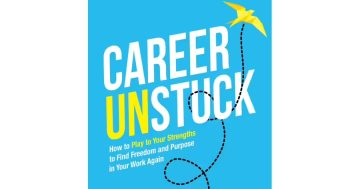Laura Stack* lists some of the common management traits that create toxic workplace environments and send productivity tumbling.
 Call them dinosaur-brains or Neanderthals, there are people in every organisation who live to make us miserable.
Call them dinosaur-brains or Neanderthals, there are people in every organisation who live to make us miserable.
They aren’t necessarily actively toxic, but some are so rude, bureaucratic, and/or annoying, your automatic response may be to disengage from them and your work.
As we all know, disengagement kills productivity.
Hopefully, you’re not the Neanderthal in question.
However, if you want to send personal and team productivity tumbling, here are four great ways to do it.
Micromanage… or ignore:
Helicopter managers who hover at your shoulder and control every aspect of your work are foolish.
This is not just because they frustrate others and encourage disengagement, but also because they don’t get their own work done.
Alternately, they may waste time redoing existing work — even worse.
If you’re not a manager but you still micromanage other people in your work process, that’s just as bad.
However, going too hands off can also cause productivity to drop.
If you ignore your people or your group adopts the ‘no manager’ holacracy method, engagement may plummet to as little as two per cent, according to a recent Gallup survey.
Google recently tried a holacracy experiment, but it failed miserably within six weeks.
Teams just weren’t producing without managers to guide them, because they felt lost trying to guide themselves.
So, before you try a holacracy, give it a second thought.
Most of us need a little middle-ground guidance.
Skimp on the air conditioning:
Back in 2010, scientist Solomon Hsiang reported productivity began to fall in the countries he studied in Central America and the Caribbean when the temperature rose above 25DegC.
The average loss was two-to-four per cent per degree of increase, simply because people tire faster when it’s hot.
Japanese office workers also suffered when heat went up after the Fukushima nuclear reactor shut-down in 2011.
Apparently, one of the reasons American productivity skyrocketed after World War II was the availability of air-conditioning.
Let annoying distractions get to you:
Philosopher Jean-Paul Sartre famously stated: “Hell is other people.”
You know that’s true when your co-workers like to chat in the hallway, listen to their voicemail on speaker, wipe their noses on their sleeves, have terrible body odour, play loud music…whatever bugs you.
You can accept this behaviour and let them kill your productivity, or you can take action.
Some of these examples are hard to handle if you want to be polite, so an anonymous note might be the best solution.
You can overcome the other examples with some polite discussion.
Otherwise, you can relocate, work elsewhere for a while, or buy noise-cancelling earphones and play music of your own.
Work too many hours:
We organic machines have this really effective self-repair mechanism known as rest.
Studies have proven long work hours have negative effects, from lowering your IQ temporarily, to risking heart failure.
In 2015, Stanford University research demonstrated 50+ hours of work in a week — even spread out over six or seven days — reduced productivity.
After 55 hours, the drop-off was so sharp you can put in 70 hours and still accomplish less than with 55 hours.
That’s just too obvious not to listen to. If you really want to kill productivity, run yourself ragged.
Obviously, I am being snarky when I suggest you sabotage your own productivity then offer ‘great’ ways to do it.
Sometimes the cautionary tale teaches better than just telling someone: “Stop it!”
Productivity can be a precarious thing, but as long as you work hard and focus without overdoing it, working under a middle-of-the-road amount of supervision, you’ll do fine.
Oh — and stay cool while you’re at it.
*Laura Stack is a keynote speaker and author on productivity and performance. She has written seven books, including her newest work, Doing the Right Things Right: How the Effective Executive Spends Time. She can be contacted at theproductivitypro.com
This article first appeared on Laura’s blogsite.











